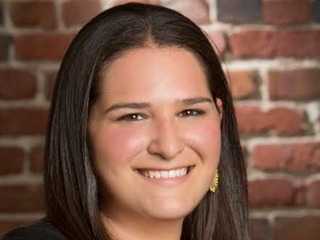Global AI in healthcare market expected to rise to $164B by 2030
The market size for 2023 was $10.31 billion
Read more... Today, 1 in 8 couples struggle with infertility, and the treatment options they have access to are both expensive, as well as inaccessible: according to the National Conference of State Legislatures, in-vitro fertilization cycles can cost anywhere from $12,000 to $17,000, and that doesn't include medication; when medication is added in, the cost can be double to around $25,000. And many patients don't just go through one cycle, but three to five cycles on average in order to have a successful pregnancy
Today, 1 in 8 couples struggle with infertility, and the treatment options they have access to are both expensive, as well as inaccessible: according to the National Conference of State Legislatures, in-vitro fertilization cycles can cost anywhere from $12,000 to $17,000, and that doesn't include medication; when medication is added in, the cost can be double to around $25,000. And many patients don't just go through one cycle, but three to five cycles on average in order to have a successful pregnancy
In order to help break through all of these difficulties, inefficiencies, and barriers to access, Alife Health, which announced a $22 million Series A round of funding on Tuesday, is trying a new approach: artificial intelligence.
"We believe AI has tremendous potential to impact the effectiveness and equity of fertility care," said Paxton Maeder-York, Alife's CEO and founder. "Our team has worked tirelessly to construct one of the largest and most diverse IVF datasets from top fertility clinics around the world."
The company's AI uses pattern recognition to analyze this data and determine correlations between treatments and positive outcomes. It can then report what treatment plans have produced the best outcomes for past IVF patients with similar presentations. Clinicians can use these insights, combined with their own expertise, to craft a personalized IVF treatment plan.
This is a novel approach, Maeder-York told me; in fact, he said that Alife is the only company in the U.S. addressing IVF using AI.
"There are multiple steps to a typical IVF cycle, we believe that there is an opportunity to leverage AI to optimize each step from start to finish," he said.
"Rather than creating a solution for a single point in the IVF process, Alife aims to create a broad ecosystem of products to personalize IVF care and promote transparency for the patient. This will include everything from prioritization of transferable embryos to patient education."
The new round of funding was co-led by existing investor Deena Shakir at Lux Capital; it follows the company's $9.5 seed round led by Lux Capital in May 2021. Along with the new funding, it was also revealed that the company has added two new board members: Rebecca Kaden from Union Square Ventures and Anarghya Vardhana from Maveron.
Alife plans to use the new funding bring its first two products to market, as well as to continue conducting clinical studies for a third product.
The company is a two-sided marketplace, meaning it is building products to serve both IVF patients as well as clinicians; tts first medical product s called Stim Assist, and it will support reproductive endocrinologists during the ovarian stimulation process. That is when a patient receives injections of hormones to induce the ovaries to generate mature eggs; clinicians are able to retrieve the eggs from the patient so they can be fertilized and implanted back into the body for pregnancy.
Stim Assist is designed to helps clinicians increase the number of mature eggs retrieved and also to reduce patient medication costs during egg freezing or IVF.
"Using algorithms trained on 30,000 historic IVF cycles from leading U.S. fertility centers, Stim Assist generates personalized reports to help REs select a patient’s ideal starting FSH dose and trigger day," Maeder-York explained.
Alife is also planning to release its first-facing patient product later this year; it will be a mobile app that gives patients educational resources and organizational tools for medication reminders, appointments, and lab results, among other things. In addition, it's already started working on its third product, called Embryo Predict, an AI tool that analyzes patient embryos and helps embryologists prioritize them for transfer.
"We wanted to begin with products that address three of the main stakeholders in the IVF process: the reproductive endocrinologist, the embryologist, and the patient," said Maeder-York.
"We are working to build an Alife ecosystem that will capture data to improve every aspect of fertility care, from platforms that improve the patient experience to clinical support tools that improve outcomes."
(Image source: alifehealth.com)
The market size for 2023 was $10.31 billion
Read more...At Culture, Religion & Tech, take II in Miami on October 29, 2024
Read more...The company will use the funding to broaden the scope of its AI, including new administrative tasks
Read more...

